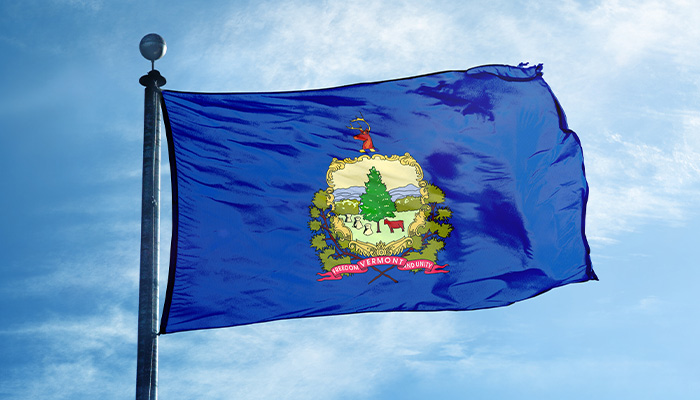Vermont Set to Launch Online Sports Betting on January 11

Vermont is gearing up to open its online sports betting market on January 11, becoming the 38th state to legalize and regulate sports betting in an online format. Governor Phil Scott and the Department of Liquor and Lottery formally announced the launch date after months of preparation.
The news comes over six months after Governor Scott signed sports betting legislation into law, paving the way for mobile platforms to take bets within state lines. Regulators have now finished the licensing process, officially approving major operators DraftKings, FanDuel, and Fanatics, allowing them to begin taking real money bets from the start date.
Projecting $7 Million in First Year Revenue
State officials project Vermont’s sports betting market could generate up to $7 million in taxable revenue within the first year of operation. Over 20% of sports betting proceeds will be directed to the state’s General Fund and Education Fund per the legislation, and this, according to Scott, was non-negotiable.
The legislature structured the law as an “open market” – regulators can license additional operators beyond the initial three if more interest emerges from reputable sportsbook brands.
Commissioner Wendy Knight cited Vermont’s strong tourism industry as an advantage in attracting bettors across state lines as well. With popular ski destinations and coveted foliage, Vermont draws over 14 million visitors annually based on pre-pandemic figures. If even just 5% of these annual visitors gamble, that’s still more than 70,000 potential bettors – and that represents significant revenue potential for the state.
Scott said in a statement:
I first proposed Vermont legalize sports wagering several years ago, and it’s good to see it come to fruition. Vermonters and visitors alike will soon be able to access a regulated sports wagering marketplace, which will come with important consumer protections and generate revenue for the State.
In conjunction with the launch, Vermont’s sports betting law focuses heavily on responsible gambling measures; operators must adhere to strict standards around problem gaming resources and self-exclusion programs. The Department of Health will also analyze data and issue annual reports on the potential impacts of expanded gambling access within the state.
Interestingly, Vermont has also implemented some pretty strict regulations, too. For example, they’ve outlawed the use of credit cards for online gambling, and operators are also required to set automatic deposit and wagering limits on player accounts.
Bettors Can Now Pre-Register Accounts
With the January 11 start date now public, bettors over 21 can pre-register accounts with the approved operators. This gives the sportsbooks a chance to verify identities and process payments ahead of launch day when betting lines open for the first time.
Once the sites are officially launched, Vermont residents and visitors will be able to place bets on all major professional sports leagues, Division 1 college games and a variety of other state and international events. Early betting activity will likely center around NFL playoffs and the Super Bowl in February, typically the most heavily bet single event in the US market.
Vermont officials believe they’ve found an optimal balance with the regulatory framework they’re bringing in, and, if projections hold true, the launch will generate substantial tax dollars for Vermont and its citizens, while the responsible gambling measures should help to keep players safe.
 by
by